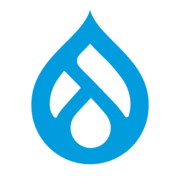Possibly the most powerful and flexible CMS
Overall Satisfaction with Drupal
We are a marketing and web development company and creating Drupal sites is one of our specialties. We use it internally for several things, but also for most of our clients' projects when their needs fit the solution. It allows us to build sites ranging from small blogs or brochure sites all the way up to huge, scalable, custom e-commerce sites utilizing the same set of tools built by one of the best communities online.
Pros
- Drupal is great at managing any amount of content, and any type of content. Its flexibility and customizability are two of its greatest strengths.
- Drupal isn't just a CMS, Drupal lets you build the CMS that website editors will be using. Its backend customization and admin features are awesome and are being expanded by the community all the time.
- There are thousands of contributed modules and themes freely available. Not only is Drupal open source, but all the best modules and themes people have built are available for free as well!
- Drupal's community is big, prolific, and welcoming. Not only can you use other's community contributions, but the community is always happy to help others building their own Drupal sites or custom modules and themes for the rest of the community. If you ever get stuck, the forums or Drupal Slack are incredible resources for assistance.
Cons
- Drupal's admin side is very powerful and flexible, but it's a little bit harder to wrap one's mind around. If a customer is familiar with using a basic WordPress site, showing them the full Drupal back-end might be overwhelming and confusing at first. Luckily you can easily limit and customize the admin pages that each role sees.
- Drupal is huge and complex. Doing simple things is generally simple, but more advanced capabilities of Drupal have a higher learning curve (as can be expected). You can build a Drupal site quickly, but don't expect to build your dream site with loads of custom features in a week.
- Ready-made themes are more sparse than something like WordPress. If you're most interested in simply plugging an existing theme in and using it, you won't find as many professional-looking themes out of the box. There are some, but with Drupal, the best results are usually achieved by finding a good base theme and creating your own child theme based off of it.
- Drupal has allowed us to build up a library of code and base sites we can reuse to save time which has increased our efficiency and thus had a positive financial impact.
- Drupal has allowed us to take on projects we otherwise would not have been able to, having a further impact.
- Drupal has allowed us to build great solutions for our clients which give them an excellent ROI.
In my mind, Drupal and WordPress are the top open source CMSes, and I rarely recommend not going with an open source CMS. WordPress can be great, especially for single developers, but I find that the code structure and extensibility of Drupal makes it superior for many use cases, and the open and friendly nature of the community seals the deal.



Comments
Please log in to join the conversation